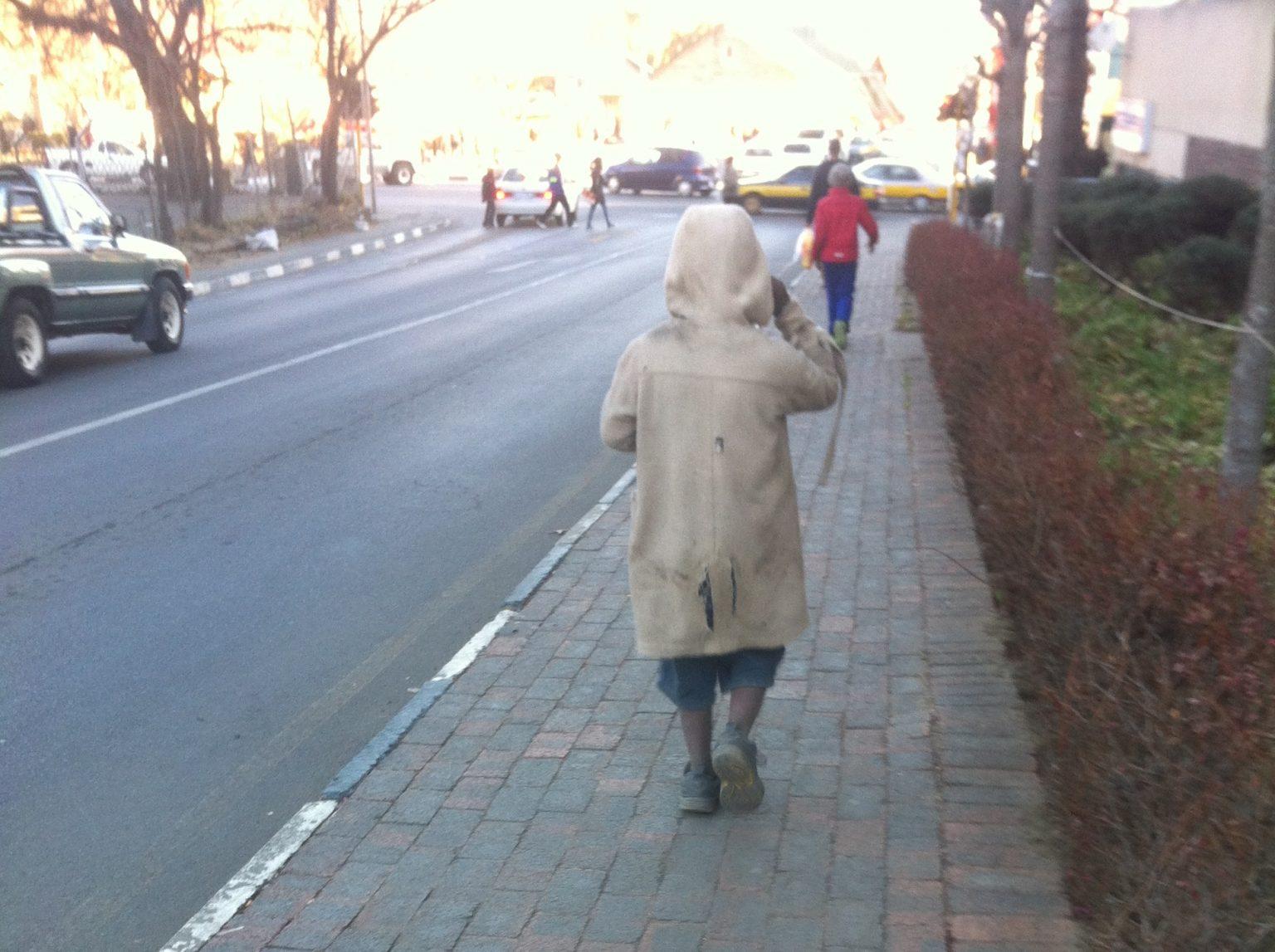Africa-Press – Lesotho. Young, desperate and sometimes mean, boys and girls as young as 10 join adults to roam the streets of Maseru’s central business district. For them, this is home.
To survive, they beg for food or offer to carry groceries for shoppers in exchange for “a little change”. Some can be seen scrounging dumpsites and foraging dustbins in search of other people’s leftovers and filth.
Wearing tattered, dirty clothes, they lean against walls basking in the sun to beat the biting cold. At night they sleep behind the plastic-made shelters which are used by the street vendors.
It is a wretched life. But without any tangible help coming their way, many are beginning to accept it as their fate. “I have been living here since 2006,” Relebohile Mohloki, 26, told thepost this week.
“It has been ages. I have seen many people come to this place with promises but they have not assisted us.
Some even took photos of us,” said Mohloki, declaring that he is the oldest street kid in the area. “They all found me here,” he said, pointing to younger street kids nearby.
Many people, keen to shop or go about their business in “peace” find them a nuisance, unaware of the scars carried by these children. Mohloki said he did not choose to be a street kid.
“My father was abusive and my mother could not protect me because she was always sick,” he said.
“One day I told myself ‘enough is enough’ and I decided to leave for good,” he said. His mother was not around when he left, he said.
“It is rough on the streets,” said Mohloki, adding that he does odd jobs carrying goods for people to survive.
Next to him were cigarette stumps and empty containers of drugs which they rely on to forget their misery. “What I need now is a job so that I can earn a proper living and leave the streets.
I can even become a small-time businessman, I used to sell ice guavas before I became a street kid,” he said. Another who hopes to get “a proper job” is 24 years old Thabo.
He was left in the care of an uncle and aunt when his parents died when he was still young. “They were rough on me,” he said. “I would go to bed without food for days.
” He said his aunt would hide the keys to the home to prevent him from accessing food.
“I realised that I he had no choice but to vacate my uncle’s home to stay on the streets,” he said, adding that he was desperate to start his own home.
“Look, I do not have any educational qualifications that can get me an office job.
All I need is money to start my own business,” he said, although for now he has to deal with the harsh reality of life on the streets. “Winter is drawing to an end now and we have been without blankets,” he lamented.
The Principal Secretary in the Ministry of Social Development, ’Mantšenki Mphalane, said one of the ministry’s responsibilities is to look after every child, including those who are vulnerable, irrespective of where they stay.
She said the ministry is aware of the plight of children and other people living on the streets. She said the ministry has been working hard to take them off the streets and reunite them with their families.
“This work is the most challenging,” she said. Mphalane said socio-economic challenges forced these children to leave their homes to fend for themselves on the streets.
Mphalane said Gender Based Violence (GBV) has contributed significantly to the increase in people living on the streets. Orphans are at most risk, said Mphalane.
“We usually talk to these children to get reasons that pushed them to the streets,” said Mphalane.
To get them to open up, one needs to gain their trust, she said. “They have a defence mechanism and they can at times lie. They can also become wild. ”
She said the ministry is working closely with an Australian centre called, Sepheo (Purpose), based at Motimposo just on the outskirts of Maseru to lift the children “from this deplorable life”.
Sepheo, on its website, says approximately 60 percent of youths moved off the streets said they had been pushed from home by social factors such as no one at home paying attention to them or providing adequate care.
Sepheo says this is because either the caregiver is frequently not at home (working late or in a different district) or is present but not engaged in parenting the child.
The centre said poor relationships between children and their caregivers where there is no real attachment between the child and their caregiver are a major concern.
While this does happen with biological mothers and or fathers, the centre said poor relationships are most often found when a child is being cared for by extended families who already feel burdened by other responsibilities.
In instances where there is family chaos, Sepheo says the child’s home environment becomes unstable. Some caregivers drink heavily, refusing to share food, constantly fight each other or speak abusively to and about the child.
Frequently a child’s biological parents are not together and the parent’s new partner does not want a child from a previous relationship, rejects the child, excludes the child from family activities or forces them to leave, according to Sepheo.
While cases do exist, only a small number of children went to the streets because they are expected to contribute financially to the family (10 percent) or because no family member took responsibility for them after the death of their parent(s) (15 percent).
Sepheo says 15 percent of children or youths went into the streets of their own volition without a compelling reason. Children are not generally on the street because no family members exist.
Lesotho’s family or community structures are incredibly strong, and finding a child with no relatives willing to stay with them is extremely rare. For nearly every child on the street, Sepheo has found at least one relative prepared to live with them.
Mphalane said these children are taken to the centre where they are introduced to schools. Here, she said, the children who are still young are enrolled in classes.
“There are classrooms there and examinations are written,” Mphalane said. She said those who are above 18 or above are introduced to vocational schools to equip them with life skills.
The centre also has sporting codes so that children feel at home and are saved from the harsh life on the streets. However, jobs are proving difficult to come by for those who have passed through the centre.
Mphalane said the ministry is putting together a strategy to ensure that jobs are available for the youths. Sepheo gets an annual government subsidy but its directors also raise funds from well-wishers.
The centre has social workers whose job is primarily to look after the children. Mphalane pointed to some children, especially those whose homes are just closer to the city, who have returned to their homes as a sign of success.
“We cannot force them to go back to their homes because they can be wild,” she said.
She said there are more children on the streets during the day, a sign of progress in the ministry’s endeavour to remove vulnerable children from the streets. She said her ministry plans to recruit two social workers to deal with issues related to street kids.
For More News And Analysis About Lesotho Follow Africa-Press






